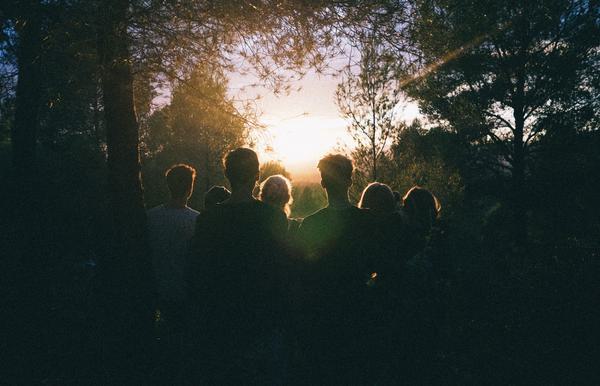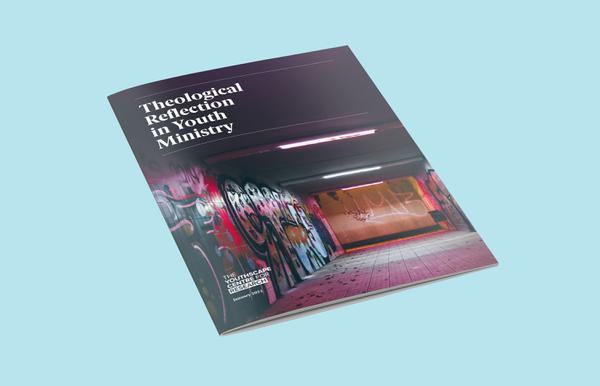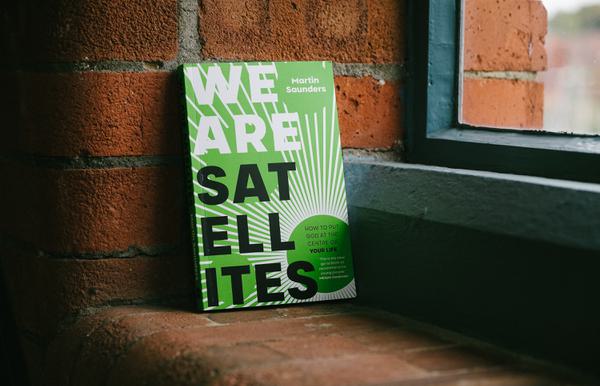Are we afraid of God’s presence and power, and how is that shaping faith for young people? What if we embraced the Holy Spirit in the everyday?
Ever had one of those moments in Christian youth work where a young person (rightly) puts you in your place? I'll never forget the conversation I had with Katie, an 18-year-old preparing for her first term at university, who'd spent much of her teenage years in prayer and worship. I'll explain what happened to Katie in a minute, but I'm sure you're ahead of me when I say: that incredible devotional life had very little to do with me. We were grabbing a hot chocolate during the evening of a summer festival; she was even higher than usual with enthusiasm for Jesus; I was counting the cost of sleep deprivation, when she looked me in the eye and asked:
"Are you scared of the Holy Spirit?"
I was indignant. How very dare she – a mere young person, challenge her learned and oh-so-terribly spiritual leader with such a question? Scared of the Holy Spirit? Nervous to engage one third of the entire Trinity? How rude. How preposterous.
How right she was. I mean, I wasn't actually scared of the Spirit, like in the sense of a phobia. But Katie had noticed that my practice – my operant theology if you want to use fancy talk – suggested that the Spirit wasn't a huge part of my thinking. My all-time favourite youth ministry analogy at that time was all about ice, liquid and steam, and Katie had just poured cold water all over it.
Me of little faith
That moment set me off on a personal charismatic revival of sorts, but really I was playing catchup. As Katie's youth leader, I had witnessed first-hand what it looks like for a young person to encounter the Holy Spirit, and to be utterly transformed as a result. We had prayed for her as a group a couple of summers before, and seen the most extraordinary physical manifestations of God's power, but perhaps way more importantly, we'd seen the way her life had looked so utterly, incredibly different afterwards. I saw Katie receive a calling from God – one that she has stepped into magnificently as an adult – but I also saw her flourishing week-in, week-out with the fruits of the Spirit.
So perhaps it was only right and just that, since I'd borne witness to all of that extraordinary evidence of God's power in Katie, she should be the one to call out my apparent lack of faith in that power when we weren't in the crazy crucible of a summer festival.
"I was nervous that he might not do anything at all. That the Spirit wouldn't heal, or bring revelation, or provoke growth and transformation in the lives of the young people I was serving. So propelled by that fear... I just didn't ask him."
I don't think I'm the only youth leader to fully embrace the Spirit's power when we're in the 'big top', but then severely manage my expectations of what that same Spirit might do in our local church or youth group. And even if I am, I know that this weird dichotomy runs completely against the biblical account of what the Holy Spirit does. Heck, it doesn't even add up as common sense. If God is real and powerful and can work in the world, he's no less powerful when there's five of us gathered than when there's five thousand.
Seeking the Spirit of Power
So what was I really scared of? Perhaps on one level I was nervous that God's Spirit might do things that made me uncomfortable. But much more than that, I think I was nervous that he might not do anything at all. That the Spirit wouldn't heal, or bring revelation, or provoke growth and transformation in the lives of the young people I was serving. So propelled by that fear... I just didn't ask him.
A quick reading of the New Testament is not kind to this position. Jesus tells his followers to ask, seek, and knock – because "if you then, though you are evil, know how to give good gifts to your children, how much more will your Father in heaven give the Holy Spirit to those who ask him!” (Luke 11 v 13) Then when he's about to leave Earth, he promises them "you will receive power when the Holy Spirit comes on you" (Acts 1 v 8). Galatians 5 lists nine character traits which will flower when we encounter the Spirit; Paul tells Timothy that this Spirit "does not make us timid, but gives us power, love and self-discipline.” (2 Tim 1 v7) The Scriptures are positively dripping with encouragements to encounter God through his Spirit, and promises of fantastic change as a result. In the vast majority of cases, these passages don't tell the stories of big festival gatherings; they suggest that the Spirit moves and ministers to us in our everyday little lives.
Logically, why wouldn't you want all that? As Thanos – the mad Titan of the Marvel Universe – realised, if access to the greatest power in the universe was available to you, then surely you'd grab it? Perhaps – and again, I'm self-diagnosing here – you'd be worried that you'd do something wrong; use the wrong words; drop the magic glove. Yet that belies a total misunderstanding of where – or who – the power comes from. When we ask God to heal, or bring words of knowledge, or send angelic languages, we do very little apart from the ask; it's not about us, and we shouldn't allow our own feelings of inadequacy to interfere. It's God who moves in power, not us.
At the end of Acts, Paul stands before King Agrippa and asks: "Why should any of you consider it incredible that God raises the dead? (Acts 26 v 8)" His point is simple: if you believe in God, then you believe he has incredible power. So why on earth would we limit that power to his ability to find us parking spaces? God is capable – and regularly in the business – of nothing short of transformation.
So let's take God at his word, and believe in the magnificent power of God. Let's make space for the Holy Spirit to move in our youth ministries, and let's not present our young people with a de-facto two-sided Trinity. Katie, the young person who frankly I looked up to even when she was 18 and half my age, skipped over her youth leader's incompetent theology and invited God's Spirit to minister to her. She was formed in the most beautiful way because of the time she spent in God's powerful presence. Don't we want the same for every young person?
Over seven weeks, we're diving deep into the core values behind Satellites– from a youth leader perspective. If you want to explore them with young people, check out our offer on the book written for them; get seven copies and a 'book group' study guide for the price of six.











